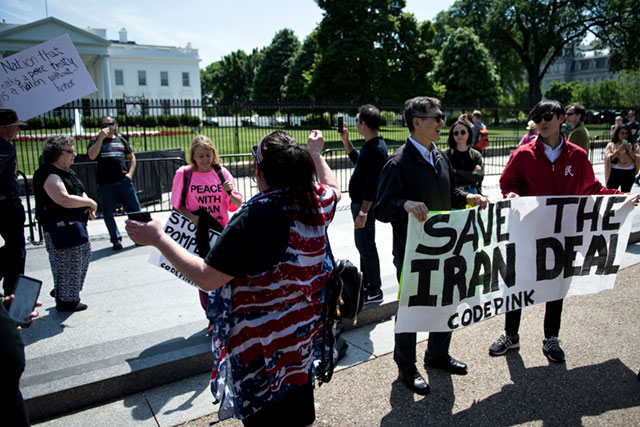
Before the theocratic government of today’s Iran, there was the brutal Shah. Before the Shah, the CIA overthrew a pro-Western government that had been democratically elected. Mohammad Mossadegh was the prime minister and his US-backed downfall in 1953 was the spark that set in motion the conflict with Iran today. In this interview, Medea Benjamin sheds light on this seminal incident with Iran. She also explores the nation’s history and politics.
Mark Karlin: How did the 1953 coup that re-installed the Shah relate to keeping the Anglo-Iranian Oil Company from being nationalized?
Medea Benjamin: In 1934, the Shah had signed a contract with the British Anglo-Iranian Oil Company giving it exclusive rights over the nation’s oil for the next 60 years. The public ire over the giveaway of the nation’s resources culminated in 1951 with the election of Mohammad Mossadegh as prime minister. Mossadegh introduced a bill to nationalize the oil, a bill that was unanimously approved by Parliament. The British then convinced the US government that nationalization was unacceptable, leading to a CIA coup that reinstated the Shah and ensured that the Anglo-Iranian Oil Company (later renamed BP) could continue to exploit Iran’s resources.
What was the impact of the coup?
The CIA coup that overthrew Iran’s democratically elected government, while deemed successful at the time, has had a tragic impact on the Iranian people and US-Iranian relations. The Shah was put back in charge with even more dictatorial powers. He built a terrifying internal security force called SAVAK that “disappeared,” tortured and killed political dissidents. All the secular parties and organizations that had opposed the Shah were dismantled and banned. The only important institution that maintained some independence and could still speak with moral authority to the concerns of the public was the Shi’ite clergy, setting the stage for the 1979 Islamic Revolution. And thanks to the constant US meddling in Iran’s internal affairs, the 1979 Revolution was not only anti-Shah, but anti-American.

Since then, the US policy has been one of trying to economically strangle the government through a variety of sanctions and trying to foment a counter-revolution. It was only during the Obama administration that there was some rapprochement with the signing of the Iran nuclear deal, but this deal was opposed by Donald Trump.
Can you briefly explain the conflict between Sunni Arab Saudi Arabia and Shi’ite Persian Iran?
The religious division between Sunni and Shia dates back to Islam’s founding in the 7th century, but Sunni and Shia have coexisted without significant conflict for much of the history of the Middle East. It was only after the 1979 Islamic Revolution in Iran that the rivalry exploded. The new Iranian leaders challenged the legitimacy of the Saudi royal family, claiming that Islam was incompatible with hereditary monarchies. The Saudi rulers’ response was to denounce Iran’s revolution as a power play by heretical Shi’ites. In essence, the Saudi-Iran rivalry is less about religion than it is about power and politics.
From your trips to Iran, what did you find, in general, that the people you met thought of the United States?
Most Iranians I met were resentful of the American government for the sanctions that have made their lives difficult, but they love the American people. My experience is that Iranians are better than Americans at distinguishing between governments and people. While Americans tend to see Iranians as their enemies (Trump’s Muslim Ban plays into this narrative), Iranians tend to have a favorable view of Americans. This is especially true of younger Iranians, who are well-educated and have direct access to US culture through social media.
How are women treated in Iran?
Westerners who think of Iranian females as passive, hijab-clad women relegated to the confines of their homes are quite misinformed. Yes, Iranian women are oppressed by government restrictions and conservative interpretations of Islamic principles — the mandatory dress code of the hijab is a visible sign of government interference in their lives. But Iranian women enjoy far greater freedoms than women in many other countries in the region, particularly Saudi Arabia, where women live under a much stricter male guardianship system. Iranian women are well-educated, involved in all aspects of society and are powerful agents of change who continuously fight for their rights, even at great personal risks.
Join us in defending the truth before it’s too late
The future of independent journalism is uncertain, and the consequences of losing it are too grave to ignore. To ensure Truthout remains safe, strong, and free, we need to raise $43,000 in the next 6 days. Every dollar raised goes directly toward the costs of producing news you can trust.
Please give what you can — because by supporting us with a tax-deductible donation, you’re not just preserving a source of news, you’re helping to safeguard what’s left of our democracy.